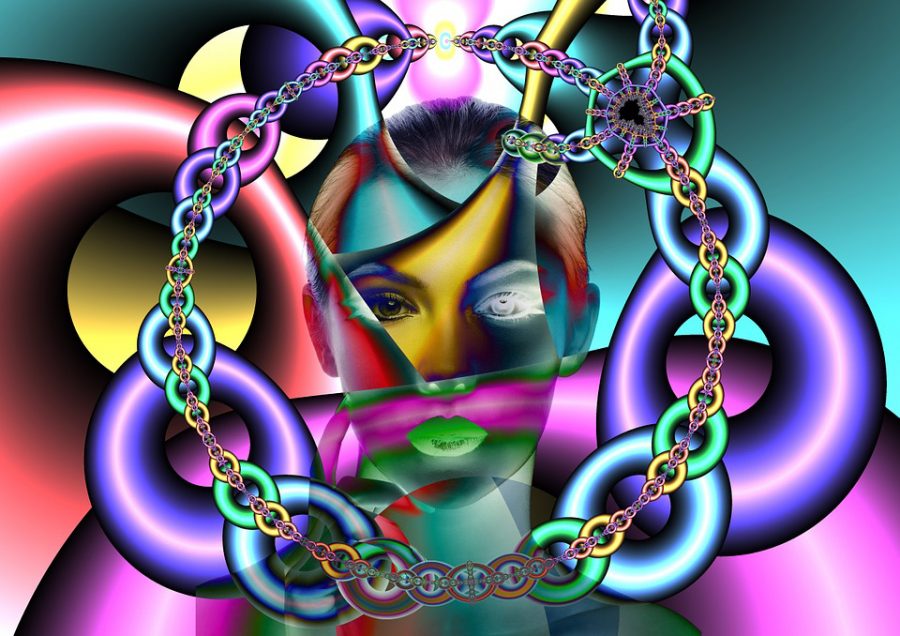OPINION: Washington should decriminalize psychedelics
Studying effects of psychedelics could yield many benefits; potentially help treat depression, other mental illnesses
Decriminalizing recreational use of psychedelics by legal adults would allow police to give more focus to dealing with more dangerous drugs, such as opioids or amphetamines, and would allow for more research.
October 4, 2019
Woodstock. Every musician between 1960 and 1975. My cool uncle at family reunions. Anyone who likes Phish. Nicolas Cage’s “Wicker Man” performance. These people and events all have one thing in common: psychedelics.
Psychedelics are defined as drugs that cause altered states of consciousness. LSD, DMT, psilocybin and others are all examples of psychedelic substances, and they’ve been an ingrained part of culture, religion and art for thousands of years.
However, despite their cultural recognition, they’re still almost completely banned throughout the United States. Most psychedelics are classified as a Schedule 1 drug by the federal government, meaning that with a few notable exceptions (such as Native American religious ceremonies), their manufacture and use are prohibited.
The problem is, this isn’t necessarily a good thing. Stringent drug policies related to psychedelics prevent researchers from studying their effects.
Additionally, grassroots organizations like Decriminalize Nature Oakland support expanded access to psychedelic and entheogenic plants, both for research and individual consumption.
In fact, Decriminalize Nature was instrumental in passing a June resolution allowing peyote and mushroom use in the city of Oakland, claiming the plants were beneficial in combating trauma, addiction and anxiety. Denver also recently passed a resolution, citing similar effects and benefits. As of now, they are the only two major American cities to do so.
Incidentally, the history of psychedelics as a controlled substance is actually fairly short.
“In the past, psychedelics … were not regulated, they were not illegal, they were just there,” said Kenneth Faunce, a WSU history professor, who teaches classes on drugs and drug policies. “We see a shift in the late 19th century to early 20th century towards prohibition of certain kinds of drugs.”
Despite the rigorous prohibition of most psychedelics in the latter half of the 20th century, experimenters began to gain traction in the 60s and 70s.
Ken Kesey, noted author, led a group of people in “acid tests,” or group consumption of psychedelics, and documented the results. Timothy Leary, a Harvard psychologist (who received his MS in psychology from WSU, incidentally), conducted similar experiments with psilocybin.
Researchers also continue to test the effects of psychedelics on mental illness and depression. While the official results are inconclusive, scientists continue to test and experiment, and study groups have yielded positive results, according to The Lancet Psychiatry.
On the business side, Silicon Valley execs often take “microdoses” of psilocybin, allegedly to help with creative thinking. Steve Jobs, in particular, spoke to the benefits of LSD, claiming that it was “one of the two or three most important things I’ve ever done in my life,” in ‘What the Dormouse Said: How the Sixties Counterculture Shaped the Personal Computer Industry,’ a book written by New York Times reporter John Markoff.
Podcast host Joe Rogan repeatedly touts the mind-expanding benefits of DMT, claiming it’s one of the world’s most powerful psychedelics.
Faced with all this information, outdated drug policies must change. It’s becoming increasingly more obvious that policies introduced in the 70s or 80s are based on information that has since changed and need to be updated to fit what we now understand about drugs and drug use. However, this isn’t an argument for full-blown complete legalization, and I’d caution anyone to interpret the data as such.
Decriminalizing psychedelics would allow researchers to fully make use of existing grant money to study the effects of the drugs themselves, giving us insight into how they can potentially be used to help people. Additionally, letting responsible adults use psychedelics in a controlled setting would help police focus their efforts on harmful drugs like opioids and amphetamines.
“We have to get past the stigma to better understand drugs,” Faunce said. “We have this tendency as a society to immediately stigmatize things, and then we can’t look at them clearly. We have to move past the stigma, that [drugs are] bad no matter what, to try to understand what’s useful about it, what’s bad about it, in a more coherent, scientific, intellectual way.”
We have to destigmatize our understanding of drugs, in order to comprehend the ways they can actually benefit society. Obviously, this isn’t a call for immediate legalization, heralded by a Grateful Dead concert. It’s merely an invitation for our nation’s lawmakers to take an objective look at psychedelics and start to reverse some of the laws preventing them from being studied and understood.

















